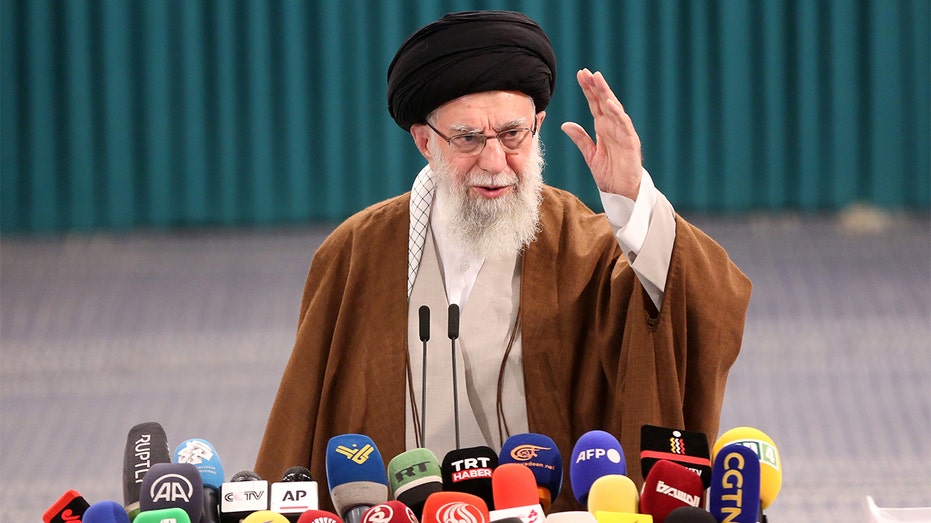Iran Condemns Austria Over Alleged Report Linking Nation to Advanced Nuclear Weapons Program
Iran denounces Austria over report alleging advanced nuclear weapons program, heightening diplomatic tensions.

Iran has issued a strong condemnation against Austria’s government following the emergence of a detailed intelligence report alleging Tehran’s continued pursuit of advanced nuclear weapons capabilities and long-range ballistic missiles. The document, produced by Austria’s Directorate State Protection and Intelligence Service, shines a spotlight on what it describes as an illicit atomic weapons program and Iranian espionage activities within Austria’s borders.
The findings come at a delicate moment in international relations, exacerbating an already volatile diplomatic landscape between Iran and Western countries. According to the Austrian intelligence report, "The Iranian nuclear weapons development program is well advanced, and Iran possesses a growing arsenal of ballistic missiles capable of delivering nuclear warheads over long distances." This assertion triggered an immediate response from Tehran, with Foreign Ministry spokesperson Esmail Baqaei categorically rejecting the allegations as "lies" and demanding a formal explanation from Vienna. The Iranian government summoned Michaela Pacher, Austria’s top diplomat in Tehran, signaling deep concern over what was characterized as a provocative and destructive act by an official Austrian agency.
Amid the diplomatic fallout, Austria reiterated its alignment with the European Union’s stance on Iran’s nuclear ambitions. In a recent EU statement to the International Atomic Energy Agency (IAEA), member states highlighted grave proliferation risks, asserting that Iran has accumulated alarmingly high levels of highly enriched uranium—quantities without credible civilian justification. The document further noted that Iran has surpassed six significant quantities of 60% enriched material, with monthly production of additional amounts, a step many experts consider dangerously close to weapons-grade material.
This assessment stands in stark contrast to the views held by U.S. intelligence agencies, which have maintained that while Iran has enhanced its capabilities, they do not believe Tehran has officially commenced a weapons program. The resulting divergence in Western intelligence perspectives has fueled ongoing debate, as the United States Office of the Director of National Intelligence declined to comment on the Austrian disclosures. Meanwhile, the White House reaffirmed its commitment to preventing Iran from ever obtaining a nuclear weapon capability.
The controversy coincides with a newly released IAEA report, which confirms that Iran’s stockpile of uranium enriched up to 60% has jumped significantly since February—now standing at 408.6 kilograms, up from 274.8 kilograms just three months prior. Such enrichment levels place Iran mere technical steps away from weapons-grade uranium, prompting the IAEA to issue a stern warning that this level of activity is of “serious concern,” and that Iran is now the only non-nuclear-weapon state producing such material.
International negotiators are closely monitoring these developments as diplomatic talks between Iranian and U.S. officials continue in Oman, exploring the possibility of reviving or replacing the nuclear deal abandoned by Washington in 2018. Iranian officials, while insisting on their right to pursue peaceful nuclear technology, emphasized that enrichment would proceed regardless of whether an agreement is reached. At the same time, European and American officials are deeply troubled by statements from Iranian leadership hinting at the potential to assemble a nuclear weapon, should circumstances dictate.
Tensions within Iran are further heightened by widespread labor unrest, as a nationwide truckers’ strike disrupts critical infrastructure. Exiled opposition figure Reza Pahlavi called on U.S. labor unions to stand in solidarity with Iranian workers, emphasizing the broader struggle for rights and freedom inside the country. These internal pressures compound the regime's challenges as it faces scrutiny and isolation from the international community.
As global powers weigh their next moves, the standoff underscores the interplay between intelligence revelations, diplomatic maneuvering, and grassroots social movements. The coming weeks are likely to prove decisive in shaping the trajectory of Iran’s nuclear ambitions and the extent of international resolve to address what many see as one of the most pressing security threats in the region.




